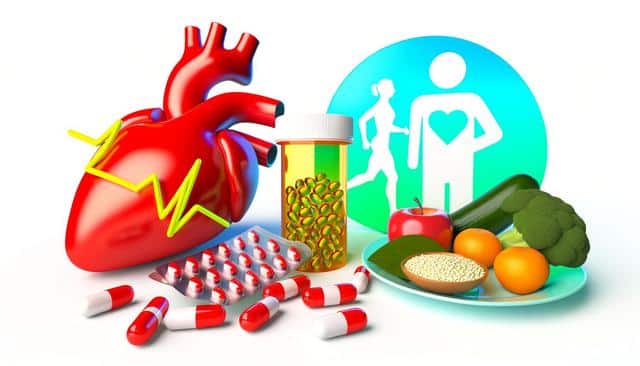Foods to Avoid with High Cholesterol for a Healthy Heart
Understanding the Impact of Cholesterol
Cholesterol is a fat-like substance found in every cell of the body, essential for producing hormones, vitamin D, and substances that help digest food. While the body produces all the cholesterol it needs, additional amounts obtained from dietary sources can lead to elevated cholesterol levels. It’s crucial to understand the types of cholesterol: low-density lipoprotein (LDL) known as ‘bad cholesterol’, and high-density lipoprotein (HDL) or ‘good cholesterol’. High LDL levels contribute to plaque buildup in arteries, increasing the risk of cardiovascular diseases.
To manage and potentially reduce high cholesterol, it’s important to focus on lifestyle changes, primarily through dietary adjustments. Avoiding specific foods plays a substantial role in maintaining or lowering cholesterol levels. This guide provides insights into high cholesterol foods to avoid chart and identifies high-cholesterol foods to stay away from for those aiming to lead a heart-healthy lifestyle.

Foods to Stay Away from with High Cholesterol
A heart-healthy diet means being selective about what goes on your plate. Reducing intake of saturated fats is pivotal as they contribute substantially to high cholesterol levels. Foods rich in saturated fat, such as fatty cuts of meat, full-fat dairy, and certain baked goods, fall under high cholesterol foods to avoid. Instead, opt for lean proteins and low-fat or non-dairy alternatives.
Trans fats, often found in processed and packaged foods like cookies, crackers, and fried items, are another category of foods to avoid with high cholesterol. They are particularly harmful as they raise LDL levels while lowering HDL. Check food labels for partially hydrogenated oils to identify these trans fats.
Moreover, it’s not always about the foods themselves but the way they are prepared. Fried foods, even those using healthier oils, should be consumed mindfully. Opt for baking, steaming, or grilling instead, and always strive for balanced meals with plenty of vegetables, whole grains, and healthy fats like those found in fish or avocados.
High Cholesterol Drinks to Avoid
Beverages can also impact cholesterol levels, especially sugary drinks like sodas and fruit juices with added sugar. These can lead to higher triglyceride levels and contribute to weight gain, indirectly affecting cholesterol. As such, high cholesterol drinks to avoid include these sugary concoctions.
Alcohol, in moderation, can be part of a healthy diet, but overindulgence can lead to weight gain and an increase in cholesterol levels. Consider limiting intake or choosing options like red wine, which may offer heart benefits due to its antioxidant content. Remember that the benefits only exist with moderate consumption.
- Sugary sodas
- Fruit juices with added sugars
- High-fat milkshake beverages
Opt for water, herbal teas, or black coffee without added sugar or cream. These choices help maintain hydration without negatively impacting cholesterol levels.
Things to Avoid with High Cholesterol
There are various other lifestyle factors to consider when managing high cholesterol. Smoking cessation is one of the most impactful changes as smoking lowers HDL and damages blood vessels. Regular physical activity is another important element, helping in weight management and boosting HDL levels.
When dealing with high cholesterol, stress management also plays a significant role. High stress can lead to poor eating habits and consequently higher cholesterol levels. Engage in activities that promote relaxation and physical well-being such as yoga, meditation, or regular exercise.
Lastly, ensure regular health check-ups to monitor cholesterol levels and discuss any necessary adjustments with a healthcare provider. Consistently integrating these lifestyle strategies can significantly contribute to the overall reduction of cholesterol-related health risks.
Balancing Diet for a Healthier Heart
Achieving a balanced diet while managing cholesterol is all about making the right swaps and focusing on nutrient-rich foods. Incorporating more soluble fiber into meals can aid in reducing cholesterol absorption in the bloodstream. Oats, beans, lentils, and fruits such as apples and pears are excellent sources.
Increasing omega-3 fatty acids, found in fish like salmon or flaxseeds, can help lower triglycerides and have heart-protective benefits. Plant stanols or sterols, often added to foods like margarine and yogurt, can also reduce cholesterol levels effectively.
Remember, dietary changes should be part of a broader lifestyle effort, including regular exercise and healthy weight management. By being mindful of foods not to eat with high cholesterol, and prioritizing beneficial alternatives, you can work towards a healthier heart and overall well-being.
